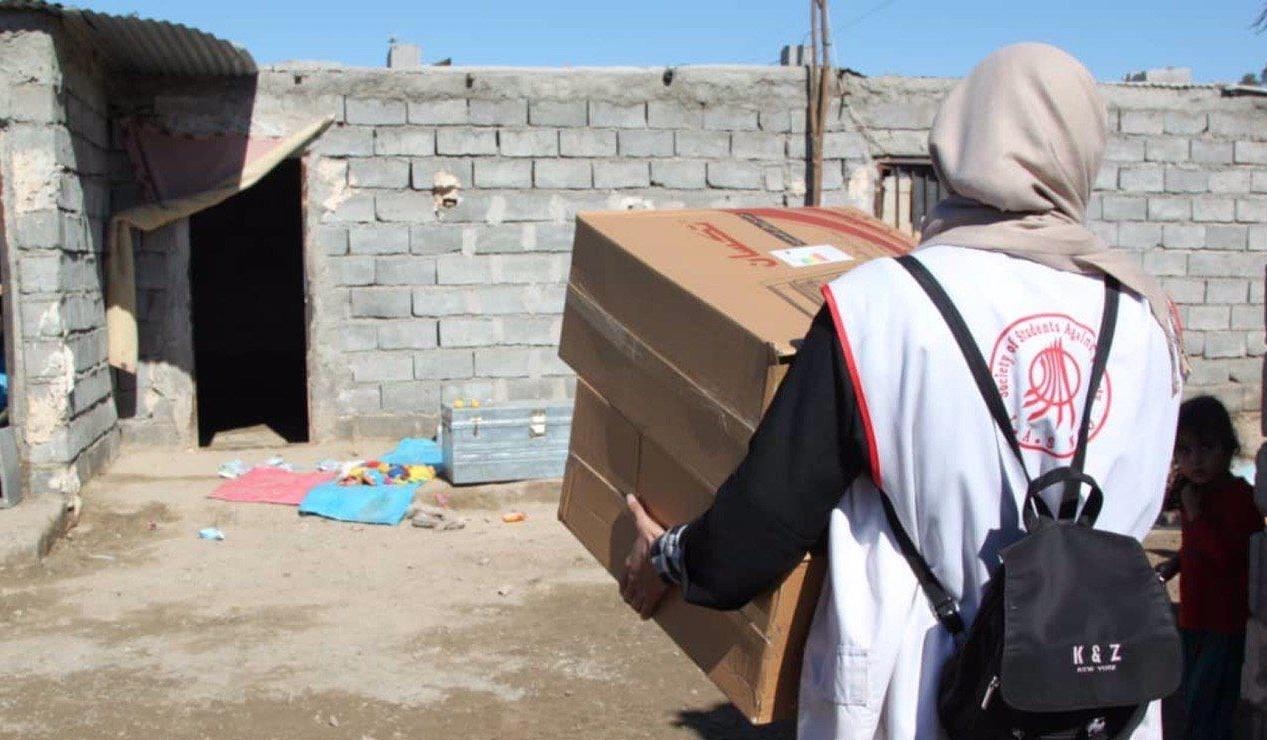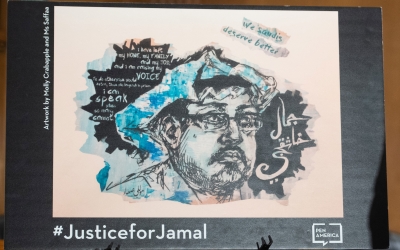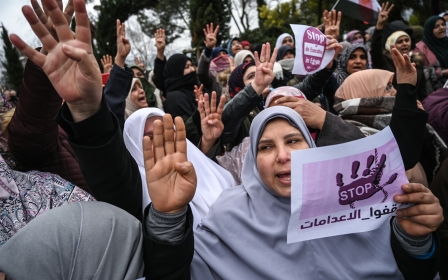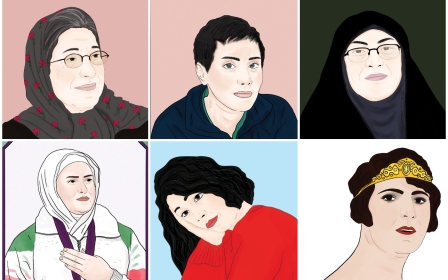Rights groups urge Iran to reverse court order to shutter leading charity

More than a dozen international human rights groups have urged the Iranian government to overturn a court order that is set to dissolve one of the country's largest registered NGOs working against poverty.
The court ordered Imam Ali’s Popular Students Relief Society (IAPSRS) to be shuttered after a 5 March ruling in favour of Iran's Ministry of Interior, which alleged that the organisation had "deviated" from its original mission and insulted religious beliefs.
New MEE newsletter: Jerusalem Dispatch
Sign up to get the latest insights and analysis on Israel-Palestine, alongside Turkey Unpacked and other MEE newsletters
Human Rights Watch (HRW), Democracy for the Arab World Now (DAWN) and the Gulf Center for Human Rights, along with 12 other leading rights groups, called the ruling "an apparent violation of the freedoms of association and speech".
The groups cited IAPSRS' importance in civil society, noting its work to alleviate poverty as well as other crucial outreach initiatives, including work against child marriage and death sentences for those who allegedly committed crimes as children.
IAPSRS works with a network of more than 10,000 volunteers with around 40 facilities located throughout marginalised neighbourhoods in Iran. It is also the only Iranian organisation to hold consultative status with the UN.
The NGO's expansion during the past 20 years includes its reach into the educational, medical, cultural and athletic sectors of society. The group has launched events for vulnerable children and programmes to support single mothers as well as fundraisers for programmes that dispatch volunteers in response to natural disasters such as earthquakes.
Government crackdown
In the government's case against IAPSRS, however, it accused the NGO of "questioning Islamic rulings" and "promoting falsehood by publishing statements against the Islamic Republic of Iran".
In Wednesday's joint statement, the rights groups said that the court referenced evidence that included IAPSRS’ statement in the aftermath of Iranian authorities' brutal crackdown against those protesting economic struggles in November 2019, in which the NGO criticised Iranian authorities for calling poverty-stricken protesters "rioters".
The government crackdown on the protesters at that time resulted in hundreds of deaths and thousands of arrests.
The UN High Commissioner for Human Rights, Michelle Bachelet, highlighted the Iranian government's initial targeting of IAPSRS in a July 2020 news release slamming authorities' "increased pressure" on the group after security forces arrested the NGO’s founder Sharmin Meymandinejad, along with colleagues Morteza Keymanesh and Katayoun Afrazeh.
'The coordinated pressure... to dissolve IAPSRS is a new assault on independent associations'
- Joint human rights statement
At the time, security forces sealed IAPSRS' main office in Tehran and confiscated all its documents and devices. The executive director of the group, Zahra Rahimi, told media that the interior ministry was demanding fundamental changes to the group’s management structure, and that if the NGO refused, it would seek its dissolution.
In Wednesday's statement, the rights groups stressed IAPSRS works within legal limitations to provide essential support for the marginalised "in a tightly restricted civil space".
"The coordinated pressure by the Rouhani administration as well as the intelligence apparatus to dissolve IAPSRS is a new assault on independent associations," the groups said.
"We call on the UN High Commissioner for Human Rights as well as the member states of the Human Rights Council and ECOSOC to raise this case with the Iranian government at the highest levels, and to pressure them to stop further curtailing the already restricted civil space in Iran," they continued.
Middle East Eye delivers independent and unrivalled coverage and analysis of the Middle East, North Africa and beyond. To learn more about republishing this content and the associated fees, please fill out this form. More about MEE can be found here.





